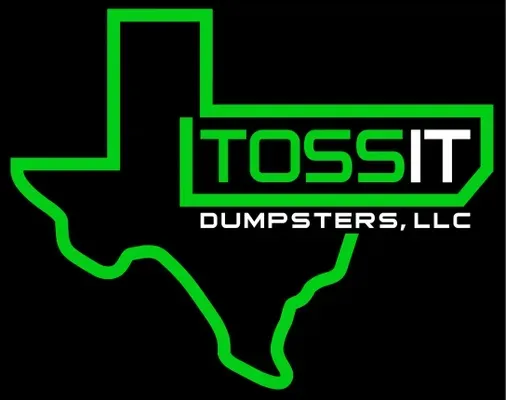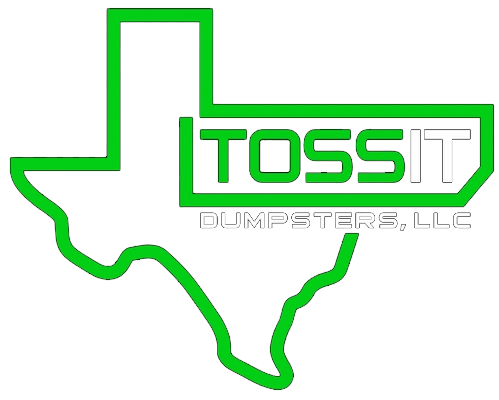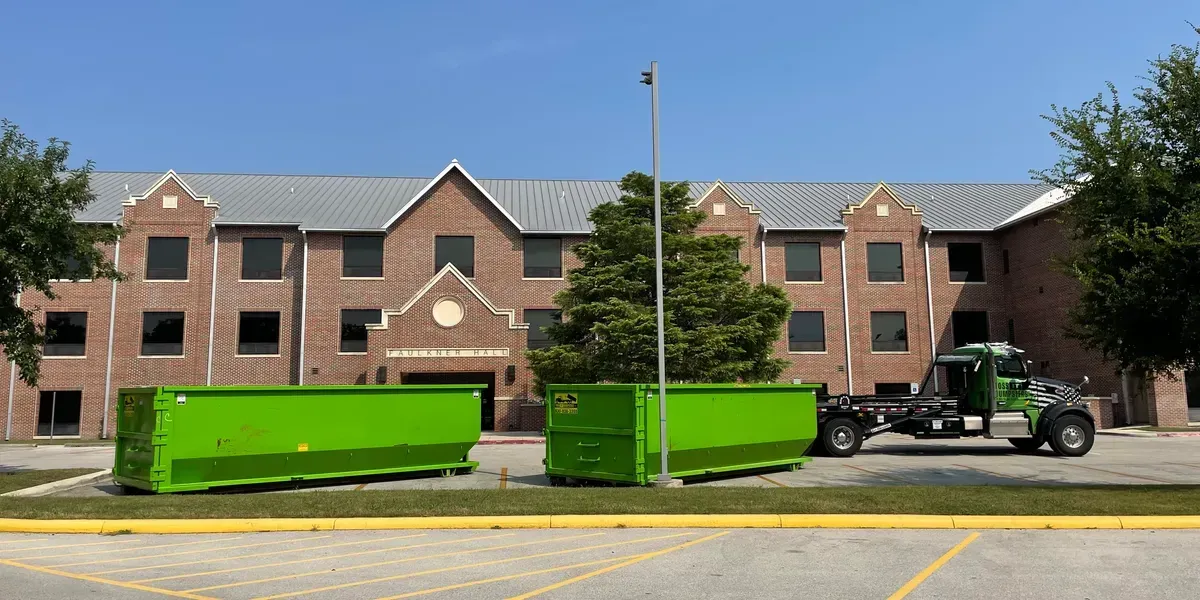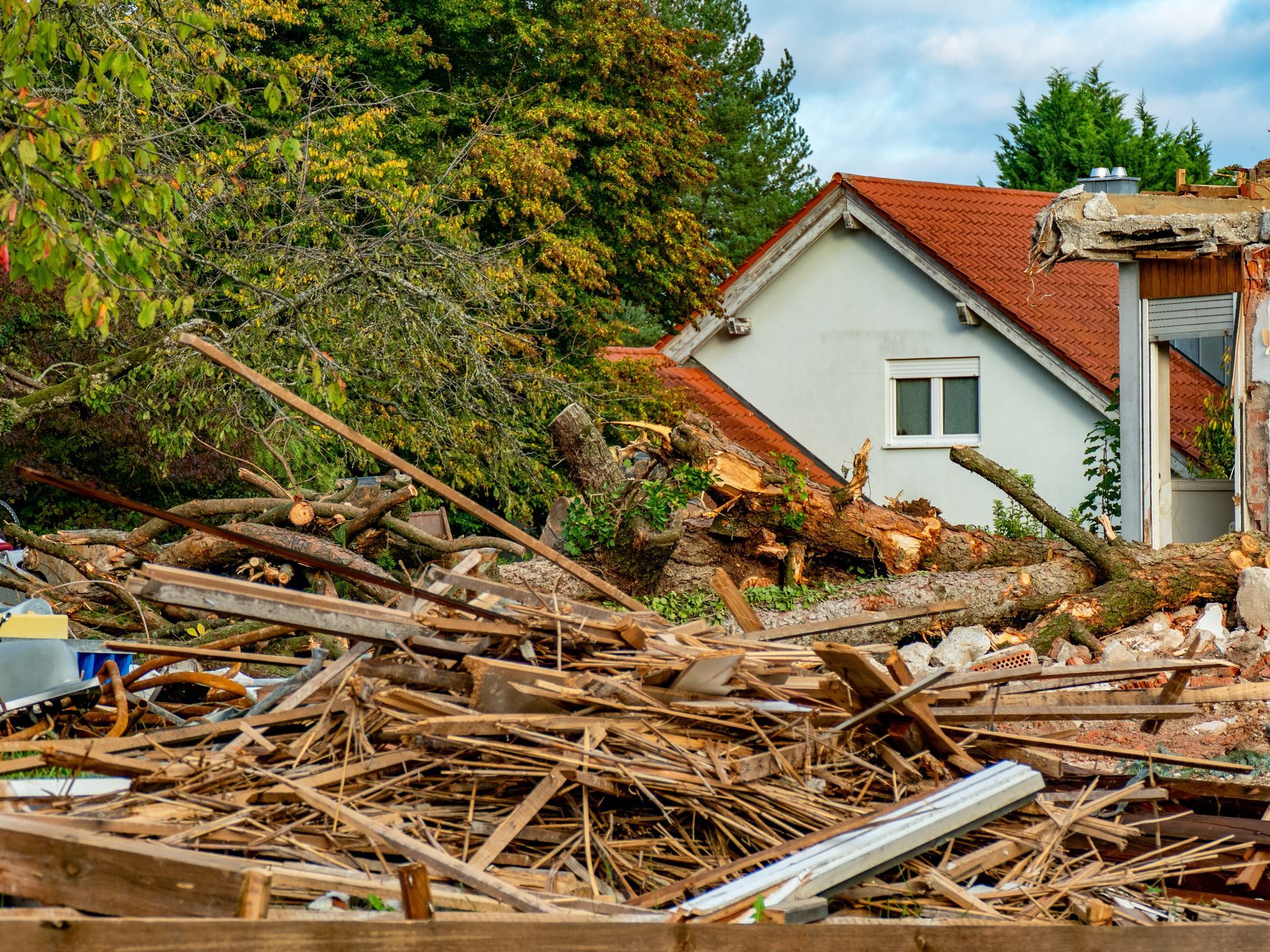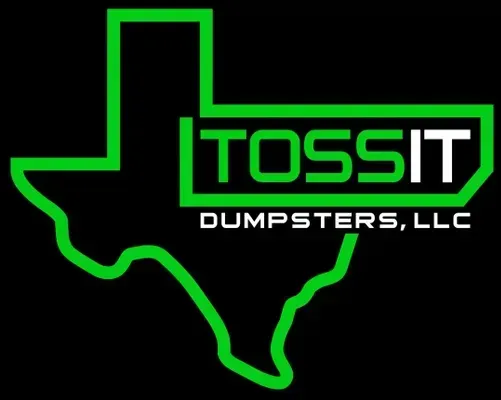What Can’t You Put in a Dumpster?
For any major undertaking — be it a construction site, a large community event, or a significant home renovation — the efficiency of waste management is a cornerstone of a successful project. A dumpster rental provides a centralized, convenient solution for handling the large volumes of debris and trash that these activities generate. The ability to toss waste and have it hauled away simplifies logistics and keeps job sites clean and safe.
However, this convenience comes with a critical set of responsibilities. For the safety of our communities in Kerrville and Bertram and the protection of the Texas environment, there are strict regulations on what can and cannot be placed in a dumpster. Understanding these restrictions is essential before you rent a dumpster. Improperly disposing of prohibited items can lead to significant fines, legal liabilities, and serious environmental damage.
As a professional dumpster rental service, we believe in partnering with our clients to get the job done right. This guide serves as a comprehensive overview of the materials that should never be placed in a rental dumpster, explaining the reasons behind these rules. Our goal is to help you plan your project with confidence, knowing you are adhering to safe and compliant waste disposal practices.
Items You Can’t Toss in a Dumpster Rental
The list of prohibited items is not arbitrary. These regulations are established by local, state, and federal laws to safeguard public health and the environment. When we pick up a dumpster, its contents are transported to a landfill or a material recovery facility, each of which has its own strict acceptance criteria.
Placing hazardous or banned materials in your dumpster rental can endanger sanitation workers, damage equipment, and introduce toxic substances into our soil and groundwater. By familiarizing yourself with this list, you become a crucial part of the solution, contributing to a safer and cleaner community.
Appliances
While it may seem like a dumpster is the perfect place for an old refrigerator or air conditioner, most appliances are strictly forbidden. The primary reason is that many of them, particularly cooling appliances, contain hazardous components. Refrigerants like Freon are potent greenhouse gases that deplete the ozone layer and must be professionally drained and recovered before the appliance can be scrapped. Additionally, some older appliances may contain mercury switches or other toxic materials.
Instead of putting them in a dumpster, appliances should be taken to a designated recycling facility or a scrap metal yard that is equipped to handle them properly. Many local utility companies or municipal waste services also offer special collection days for these items, making proper disposal for residential dumpster rentals more accessible.
Electronics | E-Waste
In our technology-driven world, electronic waste, or "e-waste," is a rapidly growing concern. Items like computers, monitors, televisions, printers, and cell phones are banned from landfills, and therefore from our dumpsters. These devices contain a cocktail of toxic heavy metals, including lead, mercury, cadmium, and beryllium. If left in a landfill, these toxins can leach into the soil over time, eventually contaminating groundwater supplies.
Furthermore, electronics contain valuable and reusable materials such as gold, silver, copper, and plastic. Specialized e-waste recycling programs are designed to safely extract these materials for reuse, reducing the need for new mining operations. Before you rent a dumpster for an office cleanout or home decluttering, be certain to set aside all electronics for a certified e-waste recycler.
Batteries
Like electronics, batteries are small items that can cause significant environmental harm. This is especially true for car batteries, which contain lead and corrosive sulfuric acid, and rechargeable batteries (like lithium-ion or Ni-Cad), which contain other heavy metals. If thrown in a dumpster, these batteries can be crushed, leading to leaks that contaminate other waste and the surrounding environment. In some cases, they can even spark and cause fires within the dumpster or at the landfill.
Proper disposal is simple and widely available. Most automotive supply stores accept old car batteries for recycling, and many home improvement or electronics stores have drop-off bins for household and rechargeable batteries.
Tires
Whole tires are a major problem for landfills and are universally banned from dumpsters. Their bulky, durable shape makes them difficult to compact, and they tend to "float" to the surface of a landfill over time, which can damage the protective liners designed to prevent contamination. Furthermore, the open shape of a tire can collect rainwater, creating a perfect breeding ground for mosquitoes and other disease-carrying pests. They also pose a fire risk and are notoriously difficult to extinguish once they ignite.
As a leading dumpster rental service, we cannot accept tires. The correct disposal method is to take them to a licensed tire recycler or a local landfill that has a specific area for tire collection. Most tire shops will also take your old tires for a small fee when you purchase new ones.
Hazardous Waste
This is a broad but critically important category that includes any material that is flammable, corrosive, reactive, or toxic. These substances pose a direct threat to human health and the environment and require special handling. Placing them in a dumpster is illegal and extremely dangerous. Common examples of hazardous waste include:
- Paints, Stains, and Solvents: Oil-based paints, thinners, and wood stains contain chemicals that are harmful if they enter the water supply.
- Automotive Fluids: This includes motor oil, antifreeze, and transmission fluid.
- Pesticides and Herbicides: These chemicals are designed to be toxic and must be disposed of with extreme care.
- Household Cleaners: Products like bleach, ammonia, and drain cleaners are corrosive and should not be mixed or thrown into the general waste stream.
- Asbestos: If you're managing a demolition or renovation of an older building, any material containing asbestos must be handled by certified abatement professionals.
- Medical Waste: Needles, biohazards, and expired pharmaceuticals are strictly regulated and require specialized disposal.
For all types of projects, including those requiring residential dumpster rentals, these materials must be taken to a designated household hazardous waste (HHW) collection facility.
Dispose of Waste Properly | Partner with Toss It Dumpsters
Responsible waste management is a collective effort. By understanding what can and cannot be placed in a dumpster, you are not only complying with the law but also actively participating in the protection of our local environment in Kerrville, Bertram, and beyond. This knowledge makes the process to rent a dumpster a safer, smoother, and more effective experience for everyone involved.
At Toss It Dumpsters, we are committed to being more than just a dumpster rental service; we are your partners in responsible project management. We provide reliable dumpster rental solutions for construction sites, events, and large-scale residential dumpster rentals, and our team is always available to answer your questions about proper disposal. We believe that an informed client is our best partner in keeping our communities clean and safe.
Planning a project in Kerrville or Bertram? Let us help you manage your waste the right way. Contact Toss It Dumpsters today to discuss your needs and schedule your dumpster rental. Our team is here to provide a reliable dumpster rental service and guide you through a successful and compliant cleanup.
Frequently Asked Questions
Q. What can I typically put in a rental dumpster?
A rental dumpster is ideal for most non-hazardous waste. This includes common construction debris like wood, drywall, and siding; household junk like furniture and clutter; and yard waste like branches and shrubs. If you have any questions about a specific material, it's always best to ask your dumpster rental service provider.
Q. Why are there extra fees for putting prohibited items in a dumpster?
When a dumpster containing prohibited items arrives at a landfill, the facility can issue fines to the hauling company. These items also require special handling and disposal, which incurs additional costs. These fees are passed on to the customer to cover the penalties and encourage proper, safe disposal practices from the start.
Q. Do you offer different sizes for residential dumpster rentals?
Yes, we offer a variety of dumpster sizes to fit different project needs. Our residential dumpster rentals are perfect for everything from a major spring cleaning or home renovation to landscaping projects. Our team can help you select the perfect size to make your home project cleanup simple and efficient.
